Location:
PMKI > Project
Controls and Scheduling > Books and Resources.

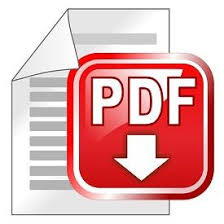
If you think we should add additional materials,
Contact Us with the
details.
- Scheduling & Controls,
Standards & Guides
- Scheduling & Controls Books
- Scheduling & Controls Resources
- Useful External Web-links &
Resources.
Other related sections of the PMKI:
- Project management history resources
 Guide to Good Practice in the
Management of Time in Major Projects: Dynamic
Time Modelling, 2nd Edition. A practical
treatise on the processes and standards required for the
effective time management of major projects, including
real life case studies dealing with strategic time
management and high-density, resource-based scheduling. It
is the definitive handbook for any project and program
management professional seeking to manage time effectively
on major projects.
Guide to Good Practice in the
Management of Time in Major Projects: Dynamic
Time Modelling, 2nd Edition. A practical
treatise on the processes and standards required for the
effective time management of major projects, including
real life case studies dealing with strategic time
management and high-density, resource-based scheduling. It
is the definitive handbook for any project and program
management professional seeking to manage time effectively
on major projects.
 The
Practice Standard for Scheduling
provides the latest thinking regarding good and accepted
practices in the area of scheduling for a project. It is a
systematic guide describing hallmarks of an effective
schedule methodology, as well as providing quantifiable
means for assessing the maturity of a schedule model.
PMI's Practice Standard for Scheduling is
available free of charge to PMI members, see: https://www.pmi.org/pmbok-guide-standards/framework
The
Practice Standard for Scheduling
provides the latest thinking regarding good and accepted
practices in the area of scheduling for a project. It is a
systematic guide describing hallmarks of an effective
schedule methodology, as well as providing quantifiable
means for assessing the maturity of a schedule model.
PMI's Practice Standard for Scheduling is
available free of charge to PMI members, see: https://www.pmi.org/pmbok-guide-standards/framework
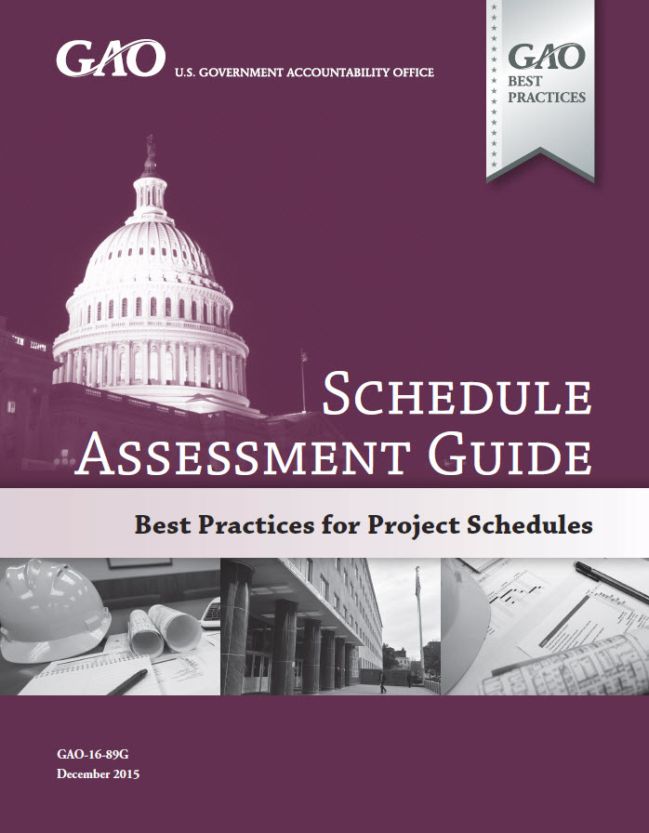 GAO
Schedule Assessment Guide: Best Practices for
Project Schedules - GAO-16-89G:
Published: 22nd December 2015. This schedule
guide is a companion to the GAO Cost Estimating and Assessment
Guide. The Schedule Assessment Guide and
Cost Guide, together offer a consistent methodology for
developing, managing, and evaluating capital program cost
estimates includes the concept of scheduling the necessary
work to a timeline. Simply put, schedule variances are
usually followed by cost variances. Because some program
costs such as labor, supervision, rented equipment, and
facilities cost more if the program takes longer, a
reliable schedule can contribute to an understanding of
the cost impact if the program does not finish on time. A
schedule risk analysis allows for program management to
account for the cost effects of schedule slippage when
developing the life-cycle cost estimate. A cost estimate
cannot be considered credible if it does not account for
the cost effects of schedule slippage.
GAO
Schedule Assessment Guide: Best Practices for
Project Schedules - GAO-16-89G:
Published: 22nd December 2015. This schedule
guide is a companion to the GAO Cost Estimating and Assessment
Guide. The Schedule Assessment Guide and
Cost Guide, together offer a consistent methodology for
developing, managing, and evaluating capital program cost
estimates includes the concept of scheduling the necessary
work to a timeline. Simply put, schedule variances are
usually followed by cost variances. Because some program
costs such as labor, supervision, rented equipment, and
facilities cost more if the program takes longer, a
reliable schedule can contribute to an understanding of
the cost impact if the program does not finish on time. A
schedule risk analysis allows for program management to
account for the cost effects of schedule slippage when
developing the life-cycle cost estimate. A cost estimate
cannot be considered credible if it does not account for
the cost effects of schedule slippage.
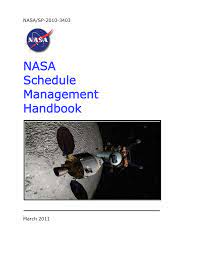 The NASA Schedule Management Handbook
descibes recommended concepts, processes, and techniques
used within the Agency and private industry. The intended
function of this handbook is two-fold: first, to provide
guidance for meeting the scheduling requirements contained
in NPR 7120.5, NASA Space Flight Program and Project
Management Requirements, NPR 7120.7, NASA Information
Technology and Institutional Infrastructure Program and
Project Requirements, NPR 7120.8, NASA Research and
Technology Program and Project Management Requirements,
and NPD 1000.5, Policy for NASA Acquisition. The second
function is to describe the schedule management approach
and the recommended best practices for carrying out this
project control function.
The NASA Schedule Management Handbook
descibes recommended concepts, processes, and techniques
used within the Agency and private industry. The intended
function of this handbook is two-fold: first, to provide
guidance for meeting the scheduling requirements contained
in NPR 7120.5, NASA Space Flight Program and Project
Management Requirements, NPR 7120.7, NASA Information
Technology and Institutional Infrastructure Program and
Project Requirements, NPR 7120.8, NASA Research and
Technology Program and Project Management Requirements,
and NPD 1000.5, Policy for NASA Acquisition. The second
function is to describe the schedule management approach
and the recommended best practices for carrying out this
project control function.
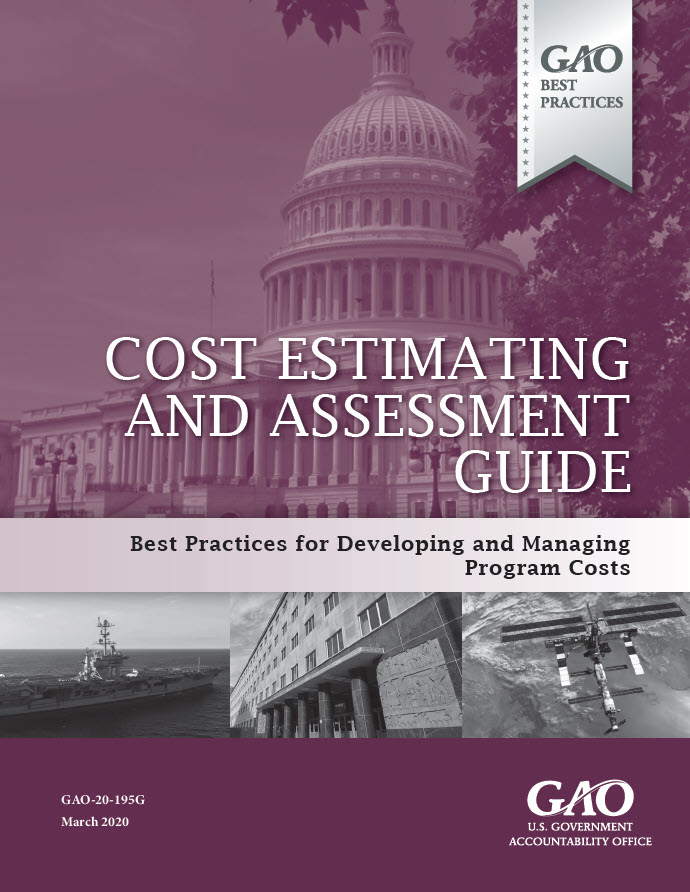 GAO
Cost Estimating and Assessment Guide: Best Practices
for Developing and Managing Capital Program Costs
- GAO-20-195G: Published: March, 2020.
This updated guide defines a consistent methodology, based
on best practices, that can be used for developing a
reliable, high-quality cost estimate, evaluating the
estimate, and then for the effective management of program
cost through the use of earned value management (EVM) in
capital program (original version published Mar 2, 2009).
GAO
Cost Estimating and Assessment Guide: Best Practices
for Developing and Managing Capital Program Costs
- GAO-20-195G: Published: March, 2020.
This updated guide defines a consistent methodology, based
on best practices, that can be used for developing a
reliable, high-quality cost estimate, evaluating the
estimate, and then for the effective management of program
cost through the use of earned value management (EVM) in
capital program (original version published Mar 2, 2009).
 The Standard for Earned Value
Management - the PMI Standard for
Earned Value Management expands on the earned value
information in the PMBOK® Guide and is applicable
across many Knowledge Areas and Process Groups. This
practice standard is intended for anyone who wants to
better develop their project management tool set and know
how to potentially improve project performance through the
use of earned value. The standard expands the available
resources on the use of EVM for medium and smaller
projects, whilst still being relevant for larger projects,
provides insight and detailed explanations of the basic
elements and processes of EVM, and demonstrates how to
scale EVM to fit varying project sizes and situations. The
PMI Practice Standard for Earned Value Management
is available free of charge to PMI members as a
non-printing PDF, see: https://www.pmi.org/pmbok-guide-standards/framework
The Standard for Earned Value
Management - the PMI Standard for
Earned Value Management expands on the earned value
information in the PMBOK® Guide and is applicable
across many Knowledge Areas and Process Groups. This
practice standard is intended for anyone who wants to
better develop their project management tool set and know
how to potentially improve project performance through the
use of earned value. The standard expands the available
resources on the use of EVM for medium and smaller
projects, whilst still being relevant for larger projects,
provides insight and detailed explanations of the basic
elements and processes of EVM, and demonstrates how to
scale EVM to fit varying project sizes and situations. The
PMI Practice Standard for Earned Value Management
is available free of charge to PMI members as a
non-printing PDF, see: https://www.pmi.org/pmbok-guide-standards/framework
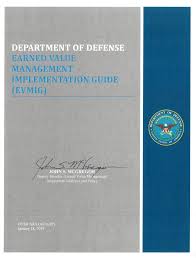 Download
the U.S. DoD Earned
Value Implementation Guide. This guide is
based on the implementation of EVM systems based on the 32
Guidelines contained in the Electronic Industries Alliance
Standard-748 EVMS (EIA-748). This approach to EVM
developed in the 1960s and has largely been superseded by
the performance based approach incorporated in ISO 21508
and the PMI Practice Standard for Earned Value
Management.
Download
the U.S. DoD Earned
Value Implementation Guide. This guide is
based on the implementation of EVM systems based on the 32
Guidelines contained in the Electronic Industries Alliance
Standard-748 EVMS (EIA-748). This approach to EVM
developed in the 1960s and has largely been superseded by
the performance based approach incorporated in ISO 21508
and the PMI Practice Standard for Earned Value
Management.
More to add.
 Easy
EVM is a self-paced course, supported by
Mosaic Project Services Pty Ltd. The purpose of this
‘course-in-a-book’ is to provide practical guidance to
people, and organizations, involved in either implementing
an earned value management system, or using information
created by an earned value management system. It provides
guidance on concepts, responsibilities, integration, and
processes, for the implementation and use of earned value
management based on ISO 21508: Earned Value Management
in Project and Programme Management. Easy EVM,
and ISO21508, are compatible with PMI's The Standard
for Earned Value Management (ANSI/PMI 19-006-2019),
and is a suitable study resource for the EVM component of
the PMI-SP and PMP exams.
Easy
EVM is a self-paced course, supported by
Mosaic Project Services Pty Ltd. The purpose of this
‘course-in-a-book’ is to provide practical guidance to
people, and organizations, involved in either implementing
an earned value management system, or using information
created by an earned value management system. It provides
guidance on concepts, responsibilities, integration, and
processes, for the implementation and use of earned value
management based on ISO 21508: Earned Value Management
in Project and Programme Management. Easy EVM,
and ISO21508, are compatible with PMI's The Standard
for Earned Value Management (ANSI/PMI 19-006-2019),
and is a suitable study resource for the EVM component of
the PMI-SP and PMP exams.
$35.00 AUD (Plus GST, Australian customers only). Size: 240 pages, 100 questions, file size 14 Mb.
Open the Book2Look preview to see the full table of contents, sample pages, and sample questions & answers. Open Book2Look preview
 Easy CPM
is a self-paced course-in-a-book, supported by Mosaic
Project Services Pty Ltd. The purpose of this
‘course-in-a-book’ is to provide practical guidance to
people involved in developing, or using schedules based
on the Critical Path Method (CPM). The book is designed
to act as a reference and practice guide to enhance the
effectiveness of their scheduling practice after they
have learned to use the CPM scheduling software of their
choice. It is divided into six sections, each section
includes guidance on an aspect of CPM scheduling,
references, and a set of 20 questions; with the answers
in Section 7. Section 8 incorporates the appendix.
Easy CPM
is a self-paced course-in-a-book, supported by Mosaic
Project Services Pty Ltd. The purpose of this
‘course-in-a-book’ is to provide practical guidance to
people involved in developing, or using schedules based
on the Critical Path Method (CPM). The book is designed
to act as a reference and practice guide to enhance the
effectiveness of their scheduling practice after they
have learned to use the CPM scheduling software of their
choice. It is divided into six sections, each section
includes guidance on an aspect of CPM scheduling,
references, and a set of 20 questions; with the answers
in Section 7. Section 8 incorporates the appendix.
Easy CPM is a suitable study resource for the CPM component of the PMI-SP and PMP exams.
$35.00 AUD (Plus GST, Australian customers only). Size: 295 pages, 120 questions, file size 22 Mb.
Open the Book2Look preview to see the full table of contents, sample pages, and sample questions & answers. Open Book2Look preview
 Planning Planet.
150,000 members (free membership), includes access to
regular blog posts, a massive Q&A Forum, a
knowledge-base WIKI, a build times library, and much
more: http://www.planningplanet.com/
Planning Planet.
150,000 members (free membership), includes access to
regular blog posts, a massive Q&A Forum, a
knowledge-base WIKI, a build times library, and much
more: http://www.planningplanet.com/
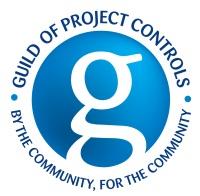 Guild
of Project Controls Compendium and Reference
(GPC-CAR). A suite of process-based
documents which document what 1000's of contributors
believe constitutes Project Controls. It is an ever
evolving global statement as to what we, the
practitioners, believe constitutes our role as 'project
controllers'. Anyone with an opinion (and justification)
is free to propose amendments and additional references.
See more at: http://www.planningplanet.com/guild/GPCCAR/
Guild
of Project Controls Compendium and Reference
(GPC-CAR). A suite of process-based
documents which document what 1000's of contributors
believe constitutes Project Controls. It is an ever
evolving global statement as to what we, the
practitioners, believe constitutes our role as 'project
controllers'. Anyone with an opinion (and justification)
is free to propose amendments and additional references.
See more at: http://www.planningplanet.com/guild/GPCCAR/
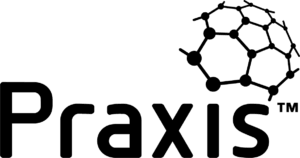 Praxis®.
A free framework for the management of projects,
programmes and portfolios. It includes a body of
knowledge, methodology, competency framework and
capability maturity model. The framework is supported by
a knowledge base of resources and an encyclopaedia.See
more at: https://www.praxisframework.org/
Praxis®.
A free framework for the management of projects,
programmes and portfolios. It includes a body of
knowledge, methodology, competency framework and
capability maturity model. The framework is supported by
a knowledge base of resources and an encyclopaedia.See
more at: https://www.praxisframework.org/
 A
large repository of Project Controls knowledge and
information: https://projectcontrolsonline.com/
A
large repository of Project Controls knowledge and
information: https://projectcontrolsonline.com/
 Project
Controls Expo (international series of
events)
Project
Controls Expo (international series of
events)
Download the Melbourne 2022 Brochure.
PM-COS - Project Management College of Scheduling. A USA Association dedicated to advancing the practice and profession of project planning and scheduling throughout the World. - http://www.pmcos.org/
AACEi - Association for the Advancement of Cost Engineering International. A prolific publisher of recommended practices covering all aspects of project controls: https://web.aacei.org/
Planning Planet. For
planning, programming and controls professionals around
the world: http://www.planningplanet.com
- incorporating The Guild of
Project Controls - project controls
certifications: http://www.planningplanet.com/guild
College of Performance Management - CPM is an international, non-profit professional organization dedicated to the disciplines of project management and performance measurement (earned value): http://www.mycpm.org/